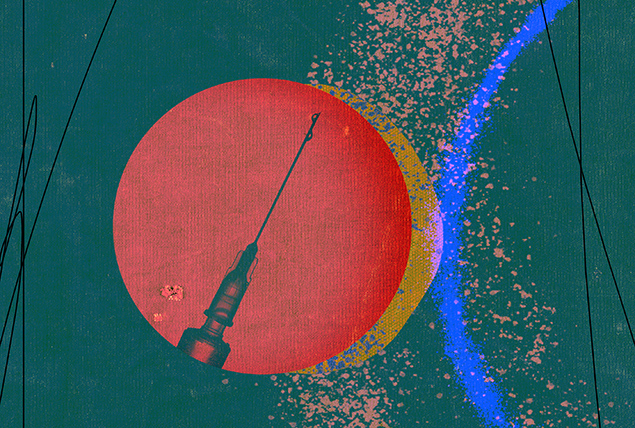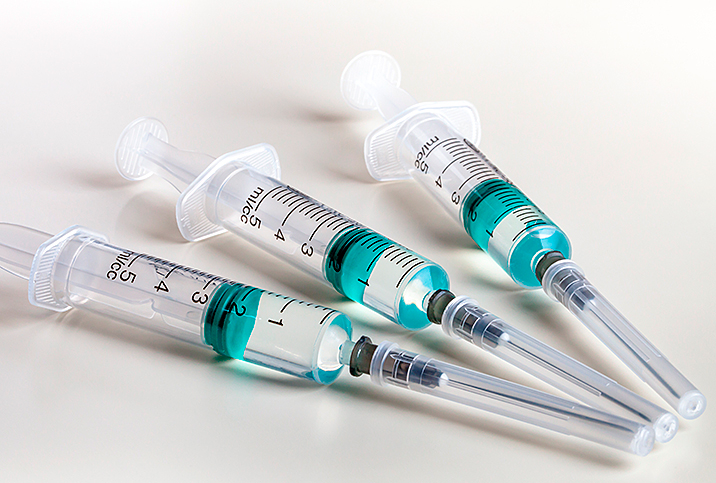Major HIV Vaccine Fails in Late-Stage Trials

A once-promising vaccine for human immunodeficiency virus (HIV) has been shown to be ineffective in preventing infection, manufacturers announced on Jan. 18.
The investigational vaccine, the only candidate still being tested in a late-stage trial, was discontinued after an independent review found it did not prevent recipients from acquiring HIV. The trial, known as Mosaico, was conducted by Janssen, which is Johnson & Johnson's pharmaceutical division.
"We are disappointed with this outcome and stand in solidarity with the people and communities vulnerable to and affected by HIV," said Penny Heaton, M.D., global therapeutic area head, vaccines, Janssen Research & Development, said in a statement.
About the Mosaico trial
The Mosaico trial, which began in 2019, followed 3,900 men and transgender people who have sex with men and/or transgender people across eight countries in Europe and North and South America.
Participants were considered at high risk of contracting HIV.
When they enrolled in the trial, people were initially offered PrEP—pre-exposure prophylaxis, a medication that is highly effective in preventing HIV—and accepted into the study only if they repeatedly declined the preventive medicine.
Participants received four shots of either the vaccine or a placebo across 12 months. After reviewing the data, an independent monitoring board found no safety issues but also no significant difference in the HIV infection rate between the two groups.
"Though there have been significant advances in prevention since the beginning of the global epidemic, 1.5 million people acquired HIV in 2021 alone, underscoring the high unmet need for new options and why we have long worked to tackle this global health challenge," Heaton explained. "We remain steadfast in our commitment to advancing innovation in HIV, and we hope the data from Mosaico will provide insights for future efforts to develop a safe and effective vaccine."
Mosaico's ineffectiveness, while disappointing, was anticipated. A previous, separate trial called Imbokodo, which tested the same vaccine among women in Africa, was scrapped in 2021.
The search for an HIV vaccine continues
The failure is the most recent blow in the elusive search for an HIV vaccine. Researchers have studied the virus for about 40 years and have yet to develop a vaccine or cure.
Developing a preventive vaccine for HIV has been a challenge for several reasons. Typical vaccine approaches fail with HIV due to the virus's unique biological properties, including an ability to rapidly mutate and shield itself from recognition from antibodies, according to the International AIDS Vaccine Initiative. While other vaccines work by teaching the immune system to generate antibodies that fight a virus, HIV disguises itself and mutates too rapidly for antibodies to contain the infection.
In spite of these hurdles, researchers remain hopeful. Other vaccines are in development, including efforts that rely upon the same mRNA vaccine technology behind some of the coronavirus vaccines, though it's too soon to assess their effectiveness.
"The search for a vaccine must continue, but it's important to remember that despite this setback, the world can still end AIDS by 2030 by delivering all the proven prevention and treatment options to all the people who need them," said Winnie Byanyima, executive director of the Joint United Nations Programme on HIV/AIDS (UNAIDS), in a statement about the Mosaic trial.
In addition to PrEP, an optimistic aspect of HIV treatment and prevention is modern antiretroviral therapy (ART), which involves taking medication to achieve and maintain an undetectable HIV viral load in the body.


















